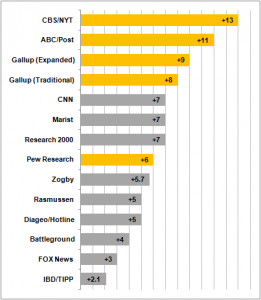I suppose it’s not surprising to hear Ismail Haniyeh, Hamas prime minister say, “We are witnessing the collapse of the American Empire.” Nor is it a surprise from Iranian President Mahmoud Ahmadinejad (“American empire in the world is reaching the end of its road”). Heck, we even expect to hear it from good old Lefties like Immanuel Wallerstein or “liberal professors” like Michael Ignatieff in the pages of the New York Times (who buried the American Empire back in 2003). What we don’t expect is to hear is political and economic elites acknowledging either the United States’ status as an imperial power or that our position as world leader might be slipping away from us. As Ignatieff notes, in 2002, President Bush went out of his way to deny our status as an imperial power, first saying, ”America has no empire to extend or utopia to establish” and later commenting, “[the U.S. has] no territorial ambitions. We don’t seek an empire. Our nation is committed to freedom for ourselves and for others.”
But with the American economy collapsing, we’re beginning to see tears shed for the good ol’ days of empire. In the New Yorker, Nick Paumgarten quotes “a top-ranking executive at a major global financial institution” as saying,
“In the past, in difficult times, Americans just worked harder,” he went on. “But there aren’t enough hours in the day, or enough incentives to work harder, and there’s nothing to work on. People, in the end, will find a way to work their way out of it. They’ll pay down their debts. They’ll have to. And then everyone will get bored with doom and gloom and dip their toes in again.
“Still, this one is so bad. After 9/11, it took people only six months to get stupid. This time, it will take ten years for people to become stupid again.” He continued, “America will just be less influential. It will be poorer. It may be the end of the empire.”
Maybe, like a bad break-up, American elites can only fully appreciate what they had now that it’s gone. Or perhaps, we’re living through a moment where the language of radicals is suddenly more permissible. John McCain’s language of “class warfare” appears to be falling flat. Critiques of free market capitalism abroad. For example, centrist Fareed Zakaria writes, “in the long run, countries are likely to seek independence from an unstable superpower … We cannot keep preaching about democracy and capitalism with our house so wildly out of order.” On the Washington Post/Newsweek online symposium, “On Faith,” Willis Elliott, a progressive minister suggests, “We should have a funeral for two dead false gods, the market and the American empire.” We even see conservative Republicans calling for more regulation! Aren’t these all ideas that would have been labeled “communist” just a few years ago?
Of course, before anybody gets too “gleeful” about the fall of Empire and the possibilities for more equitable distributions of wealth and power, perhaps we should consider Hardt and Negri’s notion of the new imperialism. In Multitude, they write,
“…[the] contemporary global order can no longer be understood adequately in terms of imperialism as it was practiced by the modern powers, based primarily on the sovereignty of the nation-state extended over foreign territory. Instead, a “network power,” a new form of sovereignty, is now emerging, and it includes…the dominant national-states along with supernational institutions, major capitalist corporations, and other powers.”
Thus, even if America loses some influence, the imperial “network” will remain in tact. So, perhaps, we’re all a bit too quick to pronounce the end of empire and the theology of the market. Maybe the empire of today will just lose a little of its American flavor.


